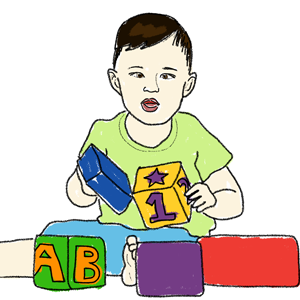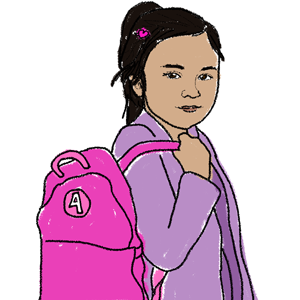- Policy Council and Parent Committee Structure - NPHS Inc. must establish and maintain a formal structure of shared governance through which parents can participate in policy making or in other decisions about the program.
- Policy Group Composition and Formation - NPHS Inc. must propose, within the framework of the regulations, the total size of their respective policy groups (the number of center, classrooms or other program option units, and the number of children served by their Early Head Start or Head Start program), the procedures for the election of parent members, and the community representatives. The Policy Group is comprised of two groups: parents of currently enrolled children and community representatives. Community members must be drawn from the local community and others who are familiar with resources and services from low-income children and families. Community representatives may include parents of formerly enrolled children.
- The Policy Council - The Policy Council must work in partnership with key management staff and the governing body to develop, review, and approve or disapprove the following policies and procedures - all funding applications and amendments to funding applications for Early Head Start and Head Start. Approve the criteria for defining recruitment, selection, and enrollment priorities.
- The Policy Council - Assists the management and the governing body with the annual self-assessment and the progress in carrying out other programmatic and fiscal intent of its grant application, including planning other actions that may result from the review of the annual audit findings from the federal monitoring review.
- The Policy Council - Assists the management and the governing body with program personnel policies and subsequent changes to these policies including standards of conduct for program staff, consultants, and volunteers.
- The Policy Council - Assists the management and the governing body to assist the parent committees in planning, coordinating and organizing program activities for parents with the assistance of staff and ensuring that funds set aside from program budgets are used to support parent activities.
- Parent Committees - The parent committee must carry out at least the following minimum responsibilities: plan, conduct and participate in informal as well as formal program activities for parents.
- Governing Body - NPHS Inc. must have in place written policies that define the roles and responsibilities of the governing body members and that inform them of the management procedures and functions necessary to implement a high-quality program.
|
|
Management Systems and Procedures
|
- Program Planning - NPHS Inc. must develop and implement a systematic, ongoing process of program planning that includes the consultation of the program's governing body, policy groups, and program staff, and with other community organizations that serve Early Head Start and Head Start or other low-income families with young children. The program must complete an assessment of community strengths, needs and resources through the Community-Wide Strategic Planning Needs Assessment (CWSPNA). The program must establish short and long-range goals that address the findings of the CWSPNA and are consistent with the philosophy of the program and reflect the findings of the program's annual self-assessment.
- Communication - NPHS Inc. must establish and implement systems to ensure that timely and accurate information is provided to parents, policy groups, staff and the general community. Must ensure that effective two-way communication between staff and parents is carried out on a regular basis throughout the year.
- Communications with governing bodies and policy groups - NPHS Inc. must ensure that these groups receive regular communication in regard to procedures and timetables for program planning; policies and guidelines and other communications from HHS, program and financial reports, program plans, policies and procedures and Early Head Start and Head Start grant applications.
- Communication with Staff - NPHS Inc. must have mechanisms for regular communication among all program staff to facilitate quality outcomes for children and families.
- Record-Keeping Systems - Must establish and maintain efficient and effective record-keeping systems to provide accurate and timely information regarding children, families and staff and must ensure appropriate confidentiality of this information. Generate periodic reports of financial status and program operations in order to control program quality, maintain program accountability and advise the governing bodies, policy groups and staff of program progress.
- Program Self-Assessment and Monitoring - At least one time each program year, with consultation and participation of the policy groups and as appropriate with other community members, conduct a self-assessment of their effectiveness and progress in meeting program goals and objectives and implementing federal regulations.
|
- Organizational Structure - Must establish and maintain an organization structure that supports the accomplishments of the program objectives. This structure must address the major functions and responsibilities assigned to each staff position and must provide evidence of adequate mechanisms for staff supervision and support.
- Staff Qualifications - NPHS Inc. must ensure that staff and consultants have the knowledge, skills and experience they need to perform their assigned functions responsibly. The program must ensure that only candidates with the qualifications specified in the regulations are hired and that parents receive preference for employment vacancies for which they qualify. Component area experts must meet the qualifications as outlined in the regulations.
- Standards of Conduct - NPHS Inc. must ensure that all staff, consultants, and volunteers abide by the program's standards of conduct.
- Staff Performance Appraisals - Must perform, at minimum, an annual performance review of each Early Head Start and Head Start staff member and use the results of these reviews to identify staff training and professional development needs, modify staff performance agreements, as necessary, and assist each staff member to improve his or her skills and professional competencies.
- Staff and Volunteer Health - All staff must have an initial health examination that includes a screening for tuberculosis and a periodic re-examination (as recommended by their health care provider or as mandated by state, tribal or local laws) so as to assure that they do not, because of communicable diseases, pose a significant risk to the health or safety of others in the Early Head Start or Head Start program that cannot be eliminated or reduced by reasonable accommodations. This requirement must be implemented consistent with the requirements of the Americans with Disabilities Act and Section 504 of the Rehabilitation Act. Regular volunteers must be screened for tuberculosis in accordance with state, tribal, or local laws. The agency must make mental health and wellness information available to staff with concerns that may affect their job performance.
- Training and Development - NPHS Inc. must establish and implement a structured approach to staff training and development, attaching academic credit whenever possible. This system should be designed to help build relationships among staff and to assist staff in acquiring or increasing knowledge and skills needed to fulfill their job responsibilities. The system must include ongoing opportunities for staff to acquire knowledge and skills necessary to implement the content of the Head Start Performance Standards.
|
|
Facilities, Equipment and Materials
|
- Head Start Physical Environments and Facilities - The agency must provide a physical environment and facilities conducive to learning and reflective of the different stages of development of each child, appropriate space, must be organized into functional areas, indoor and outdoor space used by infants/toddlers must be separated from general walkways and from areas use in by preschoolers, centers must have at least 35 sq. ft. of usable indoor space per child (exclusive of bathrooms, halls, kitchens, staff rooms and storage places) and at least 75 sq. ft. of usable outdoor play space per child, must meet the licensing requirements of the state, provide for maintenance, repair, safety and security of all Head Start facilities, materials and equipment, and a center free of toxins such as cigarette smoke, lead, pesticides, herbicides, and other air pollutants as well as soil and water contaminants. The outdoor play areas at center-based programs must be arranged so as to prevent any child from leaving the premises and getting into unsafe and unsupervised areas.
- Head Start Physical Environment and Facilities - NPHS Inc. must conduct a safety inspection at least annually, to ensure that each facilities space, light, ventilation, health, and other physical arrangements are consistent with the health, safety, and developmental needs of children.
- Head Start Equipment and Furniture - The agency must provide and arrange sufficient equipment, toys, materials, and furniture to meet the needs and facilitate the participation of children and adults. Equipment, toys, materials, and furniture owned or operated by NPHS Inc. must be supportive of the educational objectives of the program, supportive of the culture and ethnic backgrounds of the children, age-appropriate, safe and supportive of the abilities and developmental level of each child served, with adaptations, if necessary, for children with disabilities, accessible, attractive, and inviting to children, designed to provide a variety of learning experiences and to encourage each child to experiment and explore, safe, durable and kept in good condition; and stored in a safe and orderly fashion when not in use.
|
|


 Download our free app today to receive real-time alerts, catch up on news, view upcoming events and track important dates.
Download our free app today to receive real-time alerts, catch up on news, view upcoming events and track important dates.


